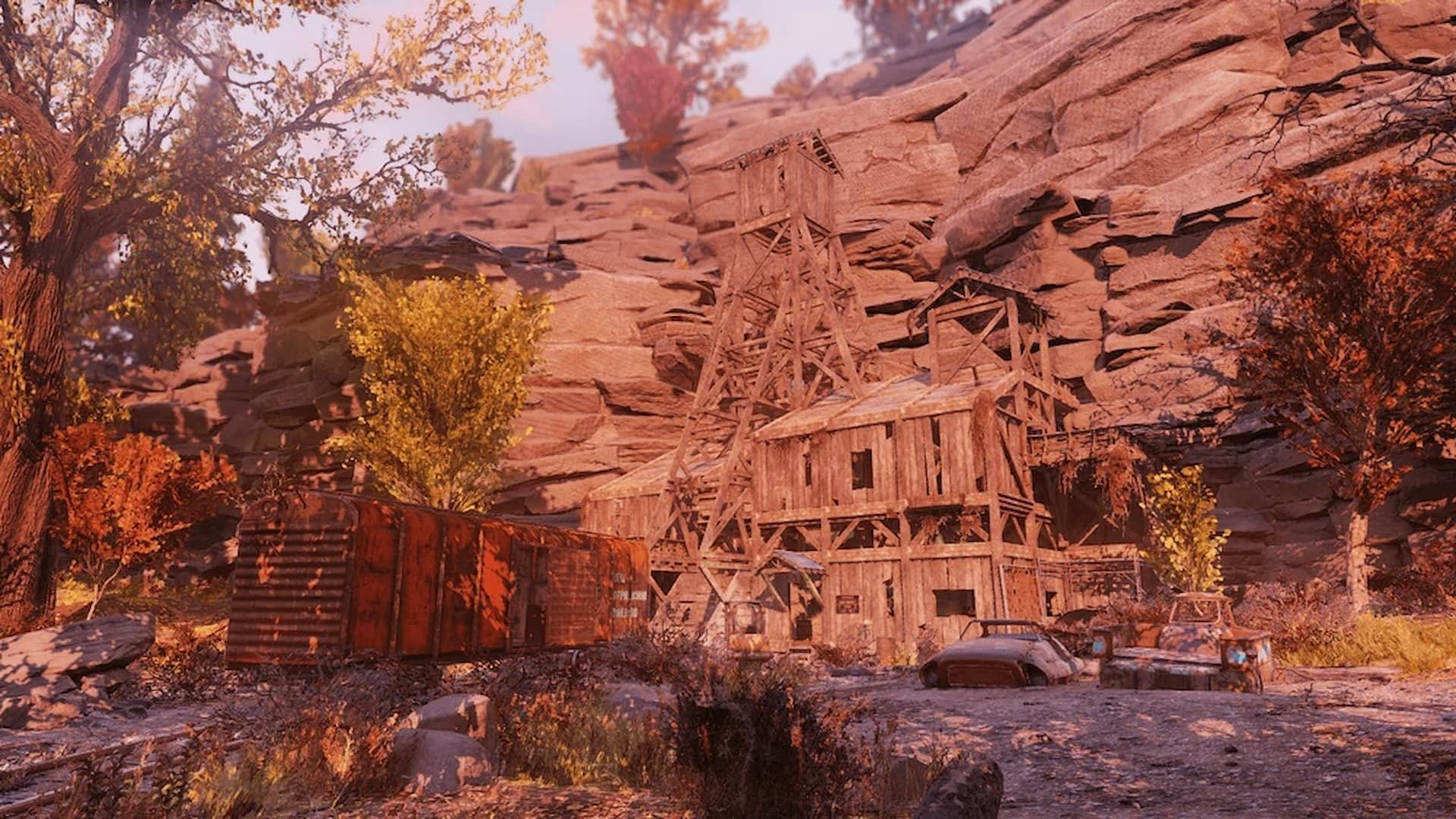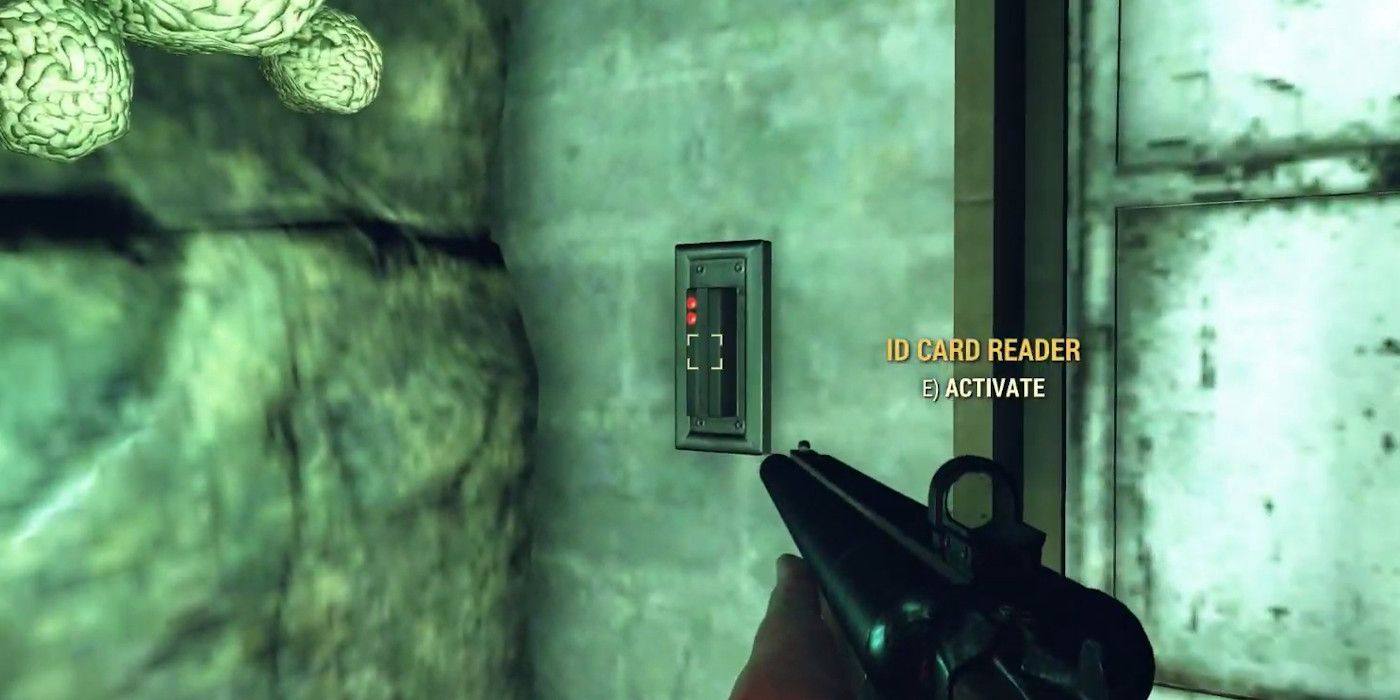Where Is The Gauley Mine ID Card: A Comprehensive Guide
Have you ever wondered where the Gauley Mine ID card is located or why it's important? The Gauley Mine ID card has been a topic of curiosity for many, especially those interested in mining history, industrial security, and artifact preservation. This article will delve into the mystery surrounding the Gauley Mine ID card, its significance, and its current status.
This question is not just about finding a physical object; it's about understanding the historical and cultural context of mining in the United States. The Gauley Mine has played a significant role in the coal mining industry, and its ID cards symbolize the workers' contributions and sacrifices. As we explore this topic, we'll uncover valuable insights into the mining industry's evolution and its impact on communities.
By the end of this article, you'll have a clearer understanding of where the Gauley Mine ID card might be located, its historical importance, and why preserving such artifacts is crucial. Whether you're a history enthusiast, a collector, or simply curious, this article is designed to provide you with detailed and actionable information.
Read also:Jacob Colliers Wife A Deep Dive Into His Personal Life And Musical Journey
Table of Contents
- History of the Gauley Mine
- What is the Gauley Mine ID Card?
- Where is the Gauley Mine ID Card?
- Why is the Gauley Mine ID Card Important?
- Preservation Efforts for Historical Artifacts
- Impact of the Mining Industry on Communities
- Possible Locations of the Gauley Mine ID Card
- Cultural Significance of Mining Artifacts
- Steps to Preserve Mining History
- Conclusion
History of the Gauley Mine
The Gauley Mine, located in West Virginia, has a rich history that dates back to the late 19th century. It was one of the largest coal mining operations in the region, employing thousands of workers during its peak. The mine played a pivotal role in the industrialization of the United States, supplying coal to power factories and railways.
During its operational years, the Gauley Mine faced numerous challenges, including labor disputes, safety concerns, and environmental issues. Despite these challenges, it remained a symbol of resilience and progress in the mining industry. Understanding the history of the Gauley Mine provides context for the significance of its ID cards.
What is the Gauley Mine ID Card?
The Gauley Mine ID card was issued to miners as a form of identification and access control. These cards were essential for tracking attendance, ensuring safety, and maintaining security within the mine. Each card contained unique information, such as the miner's name, employee number, and sometimes a photograph.
Design and Features of the ID Card
Typically, the Gauley Mine ID card was made of durable materials to withstand harsh working conditions. It featured a simple yet functional design, with the mine's logo and other identifying marks. Some cards also included perforations or punch holes to indicate shifts worked or pay status.
- Material: Plastic or metal
- Size: Wallet-sized for easy carrying
- Information: Name, employee number, photograph (optional)
Where is the Gauley Mine ID Card?
The exact location of the Gauley Mine ID card remains a mystery to many. Over the years, these cards have been scattered across private collections, museums, and historical archives. Some may still be in the possession of former miners or their families, while others might have been lost to time.
Efforts to locate and preserve these cards are ongoing, with historians and collectors working tirelessly to document their existence. While no definitive answer exists, there are several possibilities regarding their current whereabouts.
Read also:Antonia Mackenz A Comprehensive Guide To Her Life Career And Achievements
Why is the Gauley Mine ID Card Important?
The Gauley Mine ID card holds immense historical and cultural significance. It represents the lives and contributions of the miners who worked tirelessly to fuel the nation's growth. These cards are not just pieces of plastic or metal; they are tangible connections to a bygone era.
Symbolism of the ID Card
For many, the Gauley Mine ID card symbolizes the struggles and triumphs of the mining industry. It serves as a reminder of the sacrifices made by miners and their families, as well as the challenges they faced in demanding working conditions. Preserving these cards helps keep the memory of these workers alive for future generations.
Preservation Efforts for Historical Artifacts
Preserving historical artifacts like the Gauley Mine ID card is crucial for maintaining our collective heritage. Museums, historical societies, and private collectors play a vital role in safeguarding these items. Proper preservation techniques, such as controlled storage environments and digital archiving, ensure that these artifacts remain intact for years to come.
Challenges in Preservation
Despite the best efforts, preserving historical artifacts presents several challenges. Degradation due to environmental factors, lack of funding, and limited access to specialized equipment are common obstacles. Collaborative efforts between institutions and individuals are essential to overcoming these challenges.
Impact of the Mining Industry on Communities
The mining industry has had a profound impact on communities across the United States. In regions like West Virginia, mining has been both a source of economic prosperity and social challenges. The Gauley Mine, in particular, contributed significantly to the local economy, providing jobs and infrastructure.
Social and Economic Effects
While mining brought economic benefits, it also introduced social issues such as labor disputes, health concerns, and environmental degradation. Understanding these effects is crucial for addressing the needs of mining communities today. Initiatives aimed at revitalizing these areas through sustainable practices and diversification are gaining momentum.
Possible Locations of the Gauley Mine ID Card
Based on available information, the Gauley Mine ID card could be located in several places. Private collectors, historical museums, and family archives are the most likely candidates. Additionally, online marketplaces and auction sites occasionally feature these cards, making them accessible to the public.
Key Locations to Explore
- Local Museums: Many regional museums house collections of mining artifacts.
- Private Collections: Collectors often specialize in mining history and may possess rare items.
- Online Platforms: Websites like eBay and specialized forums occasionally list these cards for sale.
Cultural Significance of Mining Artifacts
Mining artifacts, including ID cards, hold immense cultural significance. They serve as physical reminders of the past, connecting us to the stories of those who came before us. By studying these items, we gain a deeper appreciation for the challenges and achievements of mining communities.
Connecting with History
For many, mining artifacts offer a tangible link to their ancestors and the history of their region. Whether displayed in museums or preserved in personal collections, these items help bridge the gap between the past and the present. Encouraging interest in mining history fosters a greater understanding of our shared heritage.
Steps to Preserve Mining History
Preserving mining history requires a concerted effort from individuals, institutions, and communities. By implementing effective preservation strategies, we can ensure that important artifacts like the Gauley Mine ID card remain accessible for future generations.
Practical Steps for Preservation
- Document artifacts with photographs and detailed descriptions.
- Store items in controlled environments to prevent degradation.
- Digitize collections to make them accessible online.
- Engage with local communities to raise awareness and support.
Conclusion
In conclusion, the question of "where is the Gauley Mine ID card" leads us to a deeper exploration of mining history and its cultural significance. These cards, though small in size, carry immense value as symbols of the miners' contributions and sacrifices. By understanding their importance and supporting preservation efforts, we honor the legacy of those who shaped our world.
We encourage you to share your thoughts and experiences in the comments section below. If you're interested in learning more about mining history or preserving artifacts, consider exploring related articles on our site. Together, we can keep the memory of the Gauley Mine and its workers alive for generations to come.
Article Recommendations

